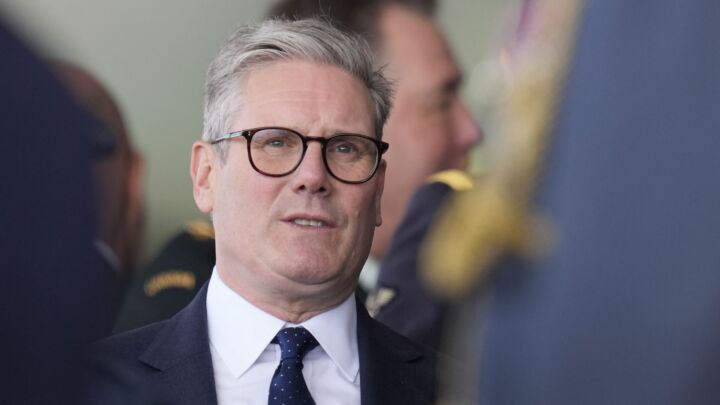Where is the solidarity with Afghanistan’s women?
The Taliban’s medieval, misogynistic new laws deserve far more international outcry.

Want to read spiked ad-free? Become a spiked supporter.
Women in Afghanistan are living through a dystopian nightmare. Last month, the ruling Taliban issued a series of wicked bans on women’s freedoms. Women are no longer allowed to speak in public. Singing and reading aloud are completely forbidden. They are prohibited from looking at men they are not married or related to. A woman’s entire face and body (including her hands and feet) are to be obscured by a severe black veil when in public.
It is hard to find the adequate words to describe such horrific abuse of women on such a large scale. According to a female Afghan journalist, writing under a pen name in The Sunday Times last weekend, women are being driven to depression and suicide out of total despair. ‘Now in my mid-twenties I have no hope left and feel that nothing will ever change’, she hauntingly writes. ‘No woman here has a life. It’s just survival.’
Such a monstrous regime deserves nothing but complete and utter condemnation. So why are many international organisations failing to do just that? The United Nations and various governments seem to prioritise normalising diplomatic relations with the Taliban over the rights of women.
The international response has been woefully inadequate. Amnesty International did call on the Taliban to end their ‘gender-based persecution’. But, as a post on X pointed out, Amnesty characterised this persecution as being against those ‘identifying as girls’. This deeply stupid description now appears to have been rewritten, however, to refer just to women and girls. Clearly, someone at Amnesty realised that such absurd woke language cannot be used to describe the plight of women in Afghanistan, who could never possibly ‘identify’ in or out of being a woman.
The UN, meanwhile, has said it will continue to ‘engage’ with the Taliban, perhaps in the mistaken belief that it can have some kind of moderating influence. Since the Taliban takeover in 2021, the UN has tried to ‘integrate’ Afghanistan into the international community. Earlier this year, the UN published a ‘roadmap’, in which secretary-general António Guterres suggests women’s rights will get better with time, as the UN builds a working relationship with the Taliban. In reality, the situation has only got progressively worse.
This approach seems at best terribly naïve and at worst totally incompetent. The Taliban have a long history of brutalising women and there has been no indication that these Islamist extremists have reformed their views at all. Rather, they shrewdly worked out what the Western liberal elite wanted to hear and made the right noises. In 2020, the New York Times published a piece by ruthless Taliban deputy and designated terrorist Sirajuddin Haqqani, titled ‘What We, the Taliban, Want’. In the article, Haqqani wrote mostly about achieving peace for his country. He also promised that women would have equal rights, once Afghanistan was ‘liberated from foreign domination and interference’. Then the Taliban could create ‘an Islamic system’, he claimed, in which ‘the rights of women that are granted by Islam – from the right to education to the right to work – are protected’.
Clearly, the Taliban played the New York Times for fools. The paper has subsequently been curiously silent on the sinister edicts recently issued in Afghanistan. Since the ban on women speaking came into force, its only articles mentioning the Taliban have been on a deadly attack in Pakistan and on Netflix adding a disclaimer to an Indian crime thriller.
Afghanistan is now a hell of misery and suffering for women. It is shocking that anyone convinced themselves that it could have been otherwise under the Taliban, based on what we all know about the threat Islamist extremism poses to women and girls. Clearly, the moral resolve of the liberal elites has been fatigued by failed foreign interventions and weakened by woke. Into this vacuum, ‘the crazies have rolled into Kandahar’.
Candice Holdsworth is a writer. Visit her website here.
Picture by: Getty.
Celebrate 25 years of spiked!
A media ecosystem dominated by a handful of billionaire owners, bad actors spreading disinformation online and the rich and powerful trying to stop us publishing stories. But we have you on our side. help to fund our journalism and those who choose All-access digital enjoy exclusive extras:
- Unlimited articles in our app and ad-free reading on all devices
- Exclusive newsletter and far fewer asks for support
- Full access to the Guardian Feast app
If you can, please support us on a monthly basis and make a big impact in support of open, independent journalism. Thank you.







Comments
Want to join the conversation?
Only spiked supporters and patrons, who donate regularly to us, can comment on our articles.